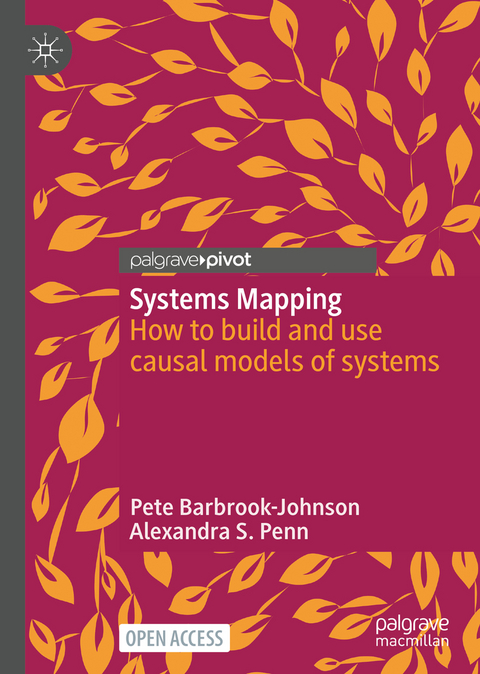
Systems Mapping
Springer International Publishing (Verlag)
978-3-031-01833-6 (ISBN)
lt;b>Pete Barbrook-Johnson is a social scientist and complexity scientist working on a range of environmental and energy policy topics, using systems mapping, agent-based modelling, and other related approaches. He is a Departmental Research Lecturer at the University of Oxford and a member of the Centre for the Evaluation of Complexity Across the Nexus (CECAN).
Alexandra Penn is a complexity scientist working on combining participatory methodologies and mathematical models to create tools for stakeholders to understand and 'steer' their complex human ecosystems. She is a Senior Research Fellow at the University of Surrey and a member of the Centre for the Evaluation of Complexity Across the Nexus (CECAN).
Chapter 1: Introduction.- Chapter 2: Rich Pictures.- Chapter 3:Theory of Change diagrams.- Chapter 4: Causal Loop Diagrams.- Chapter 5: Participatory Systems Mapping.- Chapter 6: Fuzzy Cognitive Mapping.- Chapter 7: Bayesian Belief Networks.- Chapter 8: System Dynamics.- Chapter 9: What data and evidence can you build system maps from?.- Chapter 10: Running systems mapping workshops.- Chapter 11: Comparing, choosing, and combining systems mapping methods.- Chapter 12: Conclusion.
| Erscheinungsdatum | 06.07.2022 |
|---|---|
| Zusatzinfo | XVII, 186 p. 22 illus., 13 illus. in color. |
| Verlagsort | Cham |
| Sprache | englisch |
| Maße | 148 x 210 mm |
| Gewicht | 383 g |
| Themenwelt | Naturwissenschaften ► Geowissenschaften ► Geografie / Kartografie |
| Sozialwissenschaften ► Soziologie ► Allgemeine Soziologie | |
| Sozialwissenschaften ► Soziologie ► Spezielle Soziologien | |
| Schlagworte | complexity methods • Complex Systems • Modelling • open access • participatory modelling • participatory systems mapping • Social Science • Social science research methods • systems mapping |
| ISBN-10 | 3-031-01833-8 / 3031018338 |
| ISBN-13 | 978-3-031-01833-6 / 9783031018336 |
| Zustand | Neuware |
| Informationen gemäß Produktsicherheitsverordnung (GPSR) | |
| Haben Sie eine Frage zum Produkt? |
aus dem Bereich


